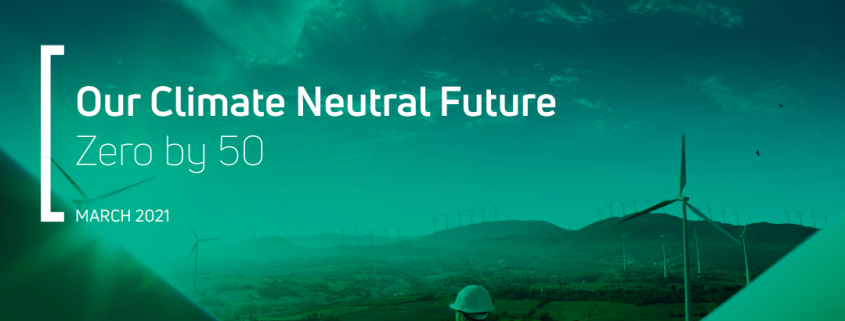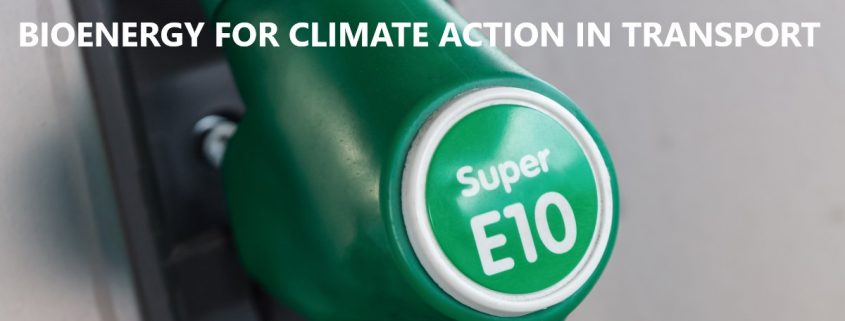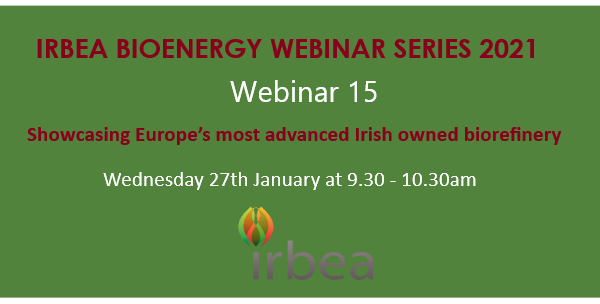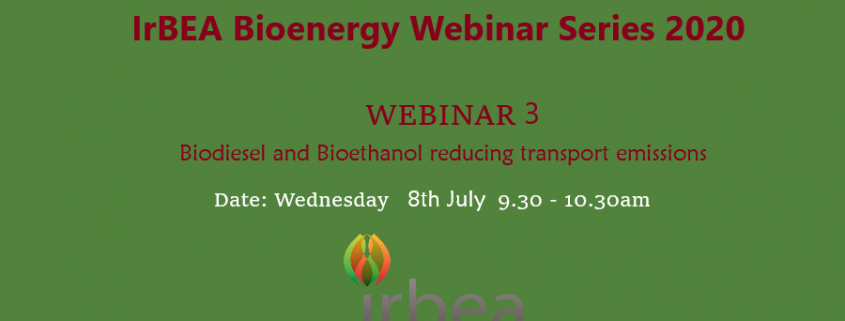It’s official. The UK government is introducing E10 to its petrol pumps in the Autumn.
For some years now the policy process there has been about when and not if they’d do it, and the when has finally arrived.
This follows an increase in January this year in the UK, in the cost to fuel suppliers of buying out a biofuels cert instead of actually using biofuel, from 30 pence per litre to 50 pence.
E10 petrol is petrol with 10% bioethanol in it, up from the current 5% blend (E5) which UK and Irish drivers having been running on for years. Bioethanol is pure alcohol, and it’s made by fermenting the sugars in grains, beet or cane. As well as displacing oil in transport, bioethanol is the basis of most hand and surface sanitising products, as well as some popular beverages and an endless list of indispensable industrial products. It is, after water, mankind’s most useful, versatile and sustainable liquid.
The position of Ireland’s department of the environment on E10 has always been the same as the UK: when and not if. The Irish government, with Eamon Ryan in charge of climate and energy, has yet to react one way or the other to the UK decision. The department is traditionally very accessible and we have sent them an invite for a briefing on the UK move and its implications for Ireland. We engaged actively with the UK Department for Transport during the period they were evaluating E10, and they even visited Ireland on a couple of occasions on our initiative, to engage with Irish stakeholders. We believe we contributed valuable evidence to them in support of E10 and their ultimate decision in favour of it.
Ireland’s fuels industry, represented by Fuels For Ireland, is keen to follow the UK, and introduce E10 here simultaneously this year. It has called on the government to mandate the use of E10 from 2021 onwards. From a technical and standards perspective there’s nothing to stop the fuels industry from going ahead and doing it piecemeal, regardless of what the government does or doesn’t do, but apparently there are commercial and logistics challenges which are best overcome by everyone moving in unison. The Irish and UK supply chains are closely related, so it makes sense for them to stick close. All refineries can and do make both E5 and E10 grades so that’s not the question. It’s actually the distribution and depot systems that need to be considered, because handling two distinct blends separately in the system, where before there was just one dominant blend, would be understandably unwieldy, especially where some parts of the distribution system are used by competing companies.
Fuel retailers won’t experience any change whatsoever, apart from a simple change to the pump labels, with the lettering E5 replaced by E10. There are no compatibility or fuel mixing issues as E10 means any ethanol blend petrol, from 0% up to 10%, so consignments of E5 and E10 petrol can be mixed together perfectly happily in any ratio at any time.
Likewise our drivers won’t experience any change. Just as the switch to E5 was imperceptible to them nearly ten years ago, so too will the switch to E10 now. Their cars will perform a bit better and emit less particulate matter from the tailpipe because ethanol is both an excellent fuel in its own right and an excellent enhancer of traditional fuel, allowing engines operate leaner and cleaner. Virtually all petrol cars on Irish roads were designed expressly to be at their optimum performance point on E10, and not on E5, and EU engine and emissions tests are referenced to E10.
Which brings us to the crux of the matter, which is why E10 was a good idea in the first place.
Ethanol is a fuel which, on a joule-for-joule basis, results in about 75% less greenhouse gas emissions than traditional petrol, when the full lifecycle is considered. Factor in that ethanol has a slightly lower energy density than petrol, and a 10% blend of ethanol by volume results in E10 being 5% or 6% less carbon intensive than conventional petrol with no bioethanol in it. This may seem modest, but bearing in mind that Ireland has a million petrol cars on the roads, E10 is the equivalent to taking 50,000 of them out of service, in terms of carbon emissions reductions. We would need around 100,000 electric vehicles to achieve the same progress. Clearly Ireland needs both EVs and E10, but the point is that E10 brings that climate progress within the existing vehicle fleet, in an instant, and at no cost to the consumer or the exchequer. France is rolling out 85% Superéthanol-E85 (requiring a discrete little €100 tuning adapter fitted to the engine) for the same reason, while many other countries have E15, E20 and E25 blends in the market.
Bioethanol is an anchor product for a biorefinery, so at our biorefinery in Hungary (www.pannoniabio.com), for every kilo of ethanol we make, there is also a kilo of protein rich GMO-free animal feed coming out of the process, plus some corn oil, biogas, fibre and some specialty biomaterials. The protein animal feed on its own would be worth the effort, because if such feed is not coming from sustainable operations such as ours it’s virtually guaranteed to be coming from out-of-sight soy meal operations in the Americas. In addition, the business assures much needed long term income stability for the farm sector and many thousands of quality jobs inside and outside the plant. Collectively, the EU biofuels sector brings over 6 billion in incomes to EU farmers annually, which is equivalent to about 15% of the CAP programme (which is a great!).
Any downsides? No, none whatsoever – bioethanol is all good.
The European Commission did introduce a blanket 7% cap on all biofuels made from crops in 2017, for fear that biofuels would grow to the point of being a danger rather than a good. In the case of domestic European biofuels that fear was an abstract notion and not connected to any real world scenario. In reality volumes of domestic biofuels could double, treble or quadruple and still be overwhelmingly more of a good thing than a danger. Ireland is so far within the crop cap that the question is totally moot for us, so no matter what way you look at it E10 is the right way to go.
In the UK the RAC issued a caveat that a small percentage of cars were built before E10 became a world standard, and that the drivers of such cars should check for compatibility. But there’s no need to check. The USA has been using E10 in all of its 250 million petrol vehicles – of every conceivable type – for many years and not a single incident has ever been reported to the fuel suppliers, the car makers or the regulators. Likewise a half dozen EU countries. Just as importantly, no amount of technical analysis or engine and lab testing has ever resulted in evidence that might be a concern. My advice is that it’s simply not an issue and that all cars, of every make, model and age run perfectly well on E10.
The bottom line is that E10 petrol is coming to the UK this year, it’s simple, easy and a win-win all round, and with a bit of luck it will arrive here too.






